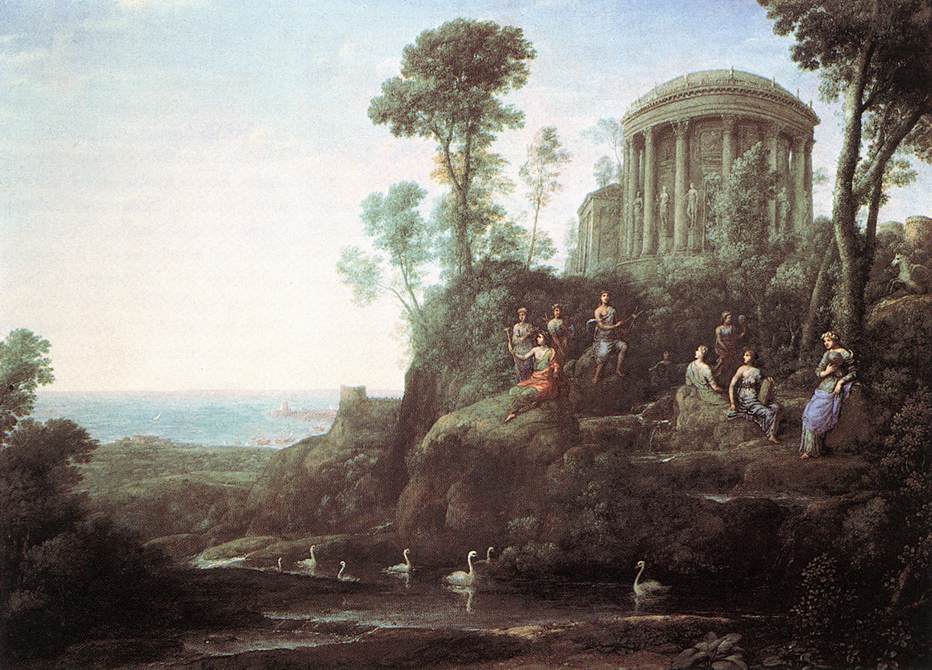Description
The painting "Apollo and the Muses on Mount Helion (Parnassus)" by artist Claude Lorrain is a 17th-century masterpiece depicting Greek mythology and the natural beauty of the landscape. Lorrain's artistic style is characterized by his ability to capture light and atmosphere, which can be appreciated in this work through his chiaroscuro technique.
The composition of the painting is impressive, as Lorrain manages to create a perfect balance between the characters and the natural environment. At the center of the work is Apollo, the god of music, surrounded by the nine muses, who provide him with inspiration and creativity. Behind them stands the majestic Mount Helion, rising above the clouds and the sea.
Color is also a prominent aspect of the work, as Lorrain uses a soft and harmonious palette that reflects the beauty of nature. The warm, golden tones of sunlight combine with the cool, blue tones of the sky and sea to create a feeling of serenity and tranquility.
The history of the painting is interesting, as it was commissioned by Cardinal Camillo Massimo in Rome in 1660. The work was originally part of a series of four paintings depicting the four seasons, but this was the only one Lorrain completed before his death in 1682.
Little-known aspects of the painting include the presence of various symbolic elements, such as Apollo's lyre and the laurel wreaths worn by the muses. Furthermore, it is said that Lorrain was inspired by the landscapes of the Lazio region of Italy to create the impressive Mount Helion.
In short, "Apollo and the Muses on Mount Helion (Parnassus)" is a masterpiece that combines Greek mythology and natural beauty in a harmonious and balanced composition. The chiaroscuro technique, the soft color palette and the symbolic elements make this painting a jewel of Baroque art.

